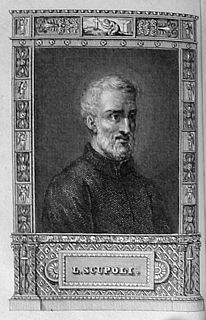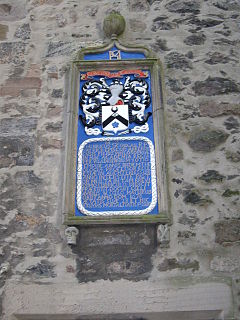A Quote by Alfred North Whitehead
God is in the world, or nowhere, creating continually in us and around us. Insofar as man partakes of this creative process does he partake of the divine, of God, and that participation is his immortality.
Related Quotes
God is constantly creating anew. And God also, invites us to be re-created and join the work of God as co-(re)creators. . . . Imagine the Kingdom of God as the creative process of God reengaging in all that we know and experience. . . . When we employ creativity to make this world better, we participate with God in the recreation of the world.
There are two gods. The god our teachers teach us about, and the God who teaches us. The god about whom people usually talk, and the God who talks to us. The god we learn to fear, and the God who speaks to us of mercy. The god who is somewhere up on high, and the God who is here in our daily lives. The god who demands punishment, and the God who forgives us our trespasses. The god who threatens us with the torments of Hell, and the God who shows us the true path.
There are two gods. A god who casts us off because of our sins, and a God who calls to us with His love.
When a man's intellect is constantly with God, his desire grows beyond all measure into an intense longing for God and his incensiveness is completely transformed into divine love. For by continual participation in the divine radiance his intellect becomes totally filled with light; and when it has reintegrated its passible aspect, it redirects this aspect towards God, filling it with an incomprehensible and intense longing for Him and with unceasing love, thus drawing it entirely away from worldly things to the divine.
Total surrender to the will of God actually is sacrificing oneself as a burnt offering to God. The proof of this state is dying to oneself, - to one's own opinions, wishes and feelings or tastes, in order to live by Divine intellect, in conformity with the Divine will and in partaking of God. In the forefront of this endeavor is our Lord and Savior. He surrendered the whole of Himself to God the Father, and us in Himself, 'For we are members of His body, of His flesh, and of His bones' (Eph. 5:30). So let us hasten in His footsteps?
Though we cannot understand "the meaning of all things," we do "know that God loveth his children" because He has said, "Behold, this is my work and my glory-to bring to pass the immortality and eternal life of man." Heavenly Father is able to accomplish these two great goals-the immortality and eternal life of man-because He is a God of creation and compassion. Creating and being compassionate are two objectives that contribute to our Heavenly Father's perfect happiness. Creating and being compassionate are two activities that we as His spirit children can and should emulate.
How is it that we do not die of love in seeing that God Himself could do no more than shed His divine blood for us drop by drop? When as man He was preparing for death, He made Himself our food in order to give us life. God becomes food, bread for his creatures. Is this not enough to make us die of love?
Think of the enormous leisure of God! He is never in a hurry. We are always in such a frantic hurry. In the light of the glory of the vision we go forth to do things, but the vision is not real in us yet; and God has to take us into the valley, and put us through fires and floods to batter us into shape, until we get to the place where He can trust us.... Let Him put you on His wheel and whirl you as He likes, and as sure as God is God and you are you, you will turn out exactly in accordance with the vision. Don't lose heart in the process.
The problem of reconciling human suffering with the existence of a God who loves, is only insoluble so long as we attach a trivial meaning to the word "love", and look on things as if man were the centre of them. Man is not the centre. God does not exist for the sake of man. Man does not exist for his own sake. "Thou hast created all things, and for thy pleasure they are and were created." We were made not primarily that we may love God (though we were made for that too) but that God may love us, that we may become objects in which the divine love may rest "well pleased".
God made the world for the delight of human beings-- if we could see His goodness everywhere, His concern for us, His awareness of our needs: the phone call we've waited for, the ride we are offered, the letter in the mail, just the little things He does for us throughout the day. As we remember and notice His love for us, we just begin to fall in love with Him because He is so busy with us -- you just can't resist Him. I believe there's no such thing as luck in life, it's God's love, it's His.








































